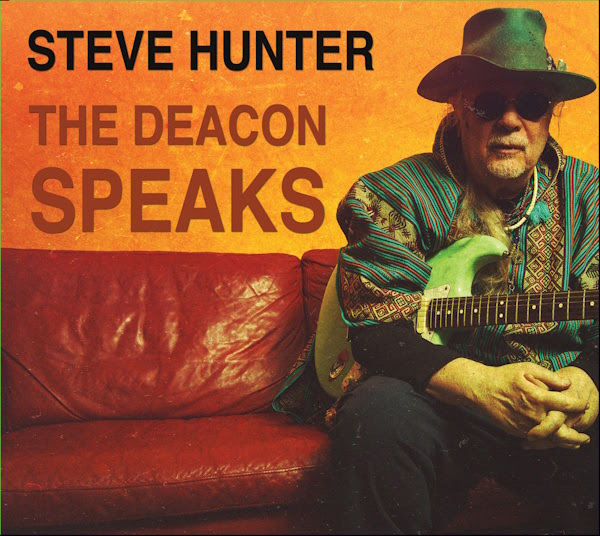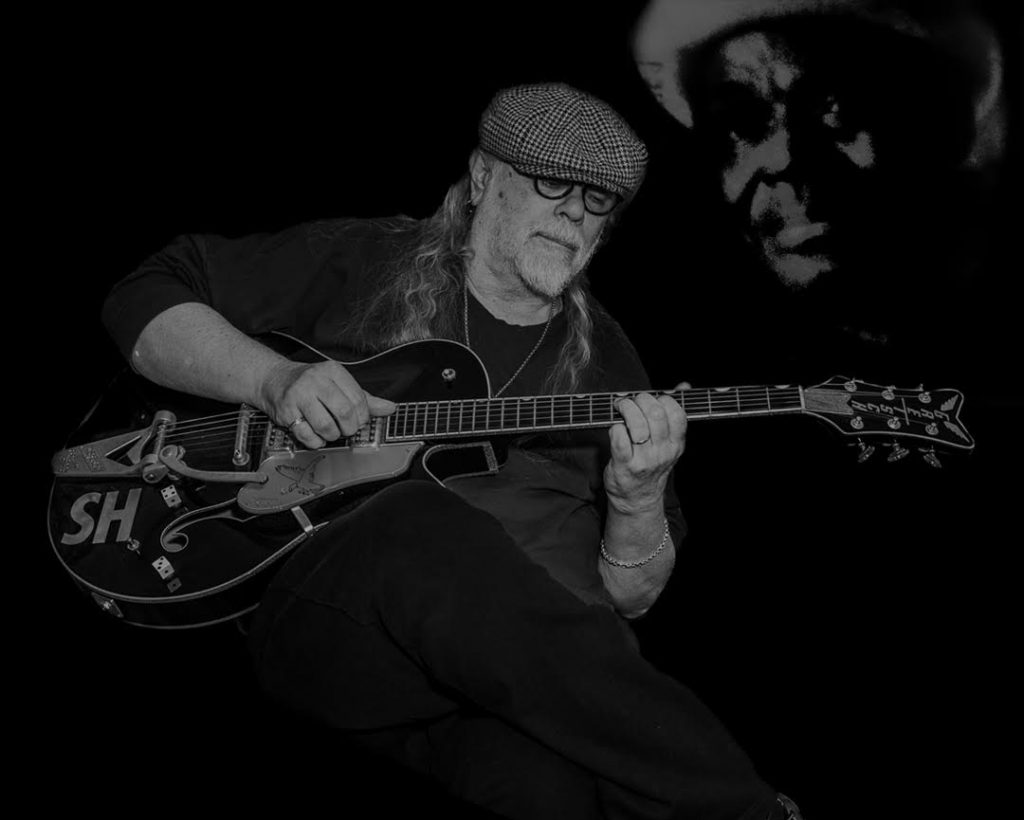Steve Hunter is best known as the go-to guitar slinger who has worked with music icons like Tracy Chapman, Peter Gabriel, Alice Cooper, Lou Reed, Jack Bruce, and Mitch Ryder among others. While all along his first love is the blues — of which he has revealed in past solo recordings.
But what’s uniquely different with his new release is that he is singing his own recordings. Something he has not done since his first solo album in 1977. When he first heard his recorded voice years ago he hated it. “What it did to me was put it in my head, you can’t sing brother, so keep your mouth shut. Just play guitar. And that is what I did for forty or fifty years.”

But Hunter finally found his voice and it was liberating. His discovery of a whole new way of being creative. An exploration. His artistic evolution. A breakthrough from an old belief that he was a guitarist and not a singer. It was Willie Dixon’s song that changed all that.
I have to thank Willie Dixon.
Hunter reflected on how it unfolded. “I was working on my instrumental album like I normally do and had about six songs in various forms of completion. I was looking for another song and thought what I like to do is an old blues tune. One of my favorite blues composers is Willie Dixon. I went on Spotify to look up Willie Dixon and the first song (in the search results) was “Back Door Man.” This is one of my favorite Dixon songs. For some bizarre reason I started singing along with it. All of a sudden I felt this was comfortable. It was really weird.”
“It was like some sort of sign. You’re gonna sing now, buddy!”
He continues, “It opened me up for this album. I have to thank Willie Dixon for it. ….‘cause it just so happens the song was in the right key, worked with my voice and everything. It was like some sort of sign. You’re gonna sing now, buddy!” This led Hunter to ponder that he should have been singing years ago, yet acceptthat the timing was what it was.
Related: Willie Dixon: The Blues is the Facts of Life
He and his wife Karen (musical collaborator and accomplished vocalist) listened to the scratch vocal track and she liked it. Hunter always hated the timbre of his voice. But now he had his eureka moment. His voice was working, shattering a closely held belief that “I can’t sing.” He asked himself “what other songs could I sing?” Then retooled his approach. Next he had the arrangements fitting into his singing, rather than adding vocals into the original instrumentals.
Hunter reached out to one particular person to vet this work-in-progress. Memtor, friend, colleague and iconic record producer Bob Ezrin (Pink Floyd, Phish, Lou Reed, Peter Gabriel, The Jayhawks, Dr. John, Nils Lofgren, Joe Bonamassa, and more). He loved it. This began a back-and-forth on the singing tracks where Ezrin’s suggestions and tweaks offered objectivity. “I needed his ears.” After listening to the final version Ezrin praised it. This further validated Hunter’s new direction.
As momentum built he thought of the title: The Deacon Speaks. Hunter’s excitement is apparent. Recounting this revelation: “My God, I’m 75 years old and starting over again!”
His younger self lacked the weather’s patina of life.
Then suddenly he “…. heard the seventy five years in my voice. That was what was wrong about 1977; I hadn’t put any miles on yet.” His younger self lacked the weather’s patina of life.
Now Hunter describes his voice as “a pinch of Dr. John mixed with Tom Waits.” Something he considers with great admiration for these artists. Waxing poetic, Hunter noted that you can hear every drop of whiskey and moment of pain in Waits voice. Likewise he brings his life experience to his singing.
In the end, Hunter thanks Willie Dixon’s divine intervention for helping him find his voice. A gift from Blues Heaven.
Head here for his newest release.


